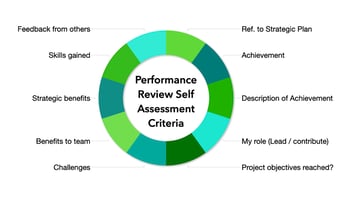So you are the preferred candidate, you have probably discussed a few items, like salary...
Individual Employment Agreement / Contracts - the basics
So you have just received a job offer, a promotion or you've renegotiated your position (Congratulations - you rock!) and then the employer sends you a contract. Your role right now is to review that document and when you are happy with it, to sign it, make a copy for yourself and send the signed document back to the employer. This signals your acceptance of the terms of your employment.
What if I don't have a written contract? 🖋️
If you don't have an offer in writing I strongly advise you not to start working until you do. Once you start, you lessen the pressure on your employer to provide the correct paperwork and you lose leverage in any subsequent negotiation.
What documents make up my contract? 📂
In this digital age you have probably received your paperwork via email. The body of the email is probably your employer's instruction to review your contract and you probably have an attachment that is your employment contract. Read your email carefully, it may contain details that are different to or absent from your contract. If you want those details agreed, you will need to point this out to your employer.
How much time to I have to review the document? ⏰
Agree the time you will need with your (almost) employer. For senior managers in normal circumstances, taking two weeks to review is fine, as the assumption should be that you will be sending the document to your lawyer. If you need more time, just let them know. Don't feel you have to turn it around quickly. It is an important agreement and both you and your employer will want to get it right.
Is it expected that I would negotiate the contract? 💰
I'm not just saying this because I am a negotiator on a mission, but YES you should negotiate it! I say this because the likelihood that a perfect contract with everything you could possibly need just lands in your Inbox is, well 🤔, implausible. Remember the data on the gender pay gap. Yes. that one. Additionally, the more senior your role the more it will be expected that you will negotiate your contract. After all, if you cannot negotiate persuasively for yourself, how can your new employer feel confident that you can negotiate well for them?
Where do I start?
So at a minimum a contract cannot leave you worse off than your minimum legal requirements. Yes I know that sounds a bit like legal advice, but it's actually advice from the Australian Fair Work Ombudsman. This is also the case in New Zealand where Employment NZ is clear that you are entitled to the minimum rights set out in the law. If you are not clear what your minimum rights are, google Australian Fair Work Commission and Employment NZ. Both organisations have websites with a heap of information that can fill in some knowledge gaps.
What differences are there between recruitment process details and your offer?
Start by comparing the contract document with the agreements you made with your employer/prospective employer during the review/recruitment process. Are they the same? If not, don't be concerned (yet). Mistakes often happen when preparing documentation, so while you are reviewing an important document that should have been crafted with care, we're all human and errors often creep in. The place to start, is to pop it on a list of "things to check" with your employer/prospective employer.
Details to check include (but may not be limited to*):
- Job title
- Responsibilities
- Salary
- Superannuation contribution
- Benefits
- Working hours (regular hours, over-time, flexible hours)
- Leave entitlements
- Probationary period
- Notice period
- Confidentiality and Intellectual property
- Non-Compete clauses
- Dispute Resolution
- Termination and severance
Is there anything missing in your contract?
Once you have started to compile the items to check, add things that might be missing to that list. When you do this, pop a note next to each item to explain why you want to talk about it. It is completely okay to have thought about several things that you missed in between the interview process and your offer arriving. Just state your preference here.
Should I let ChatGPT review my document?
Okay so a very quick word on AI and document reviews. (Am thinking of doing a workshop just on this there is soooo much in it.) Right now the commonly available AI's like ChatGPT will search up a heap of stuff for you and present it to you in a neat highly plausible way. When you get answers they look pretty good - right? Here's the thing. Quite apart from AI's still having a nasty habit of making things up (accuracy is NOT always good) they also leave things out. To minimise the risks to you, your review has to be able to understand the consequences of what is in front of you AND what isn't. For that reason, by all means ask ChatGPT questions (be careful to prompt the legal jurisdiction that applies) to learn things, but understand that you may not have complete information if you choose to use an AI.
Negotiating your agreement
I'll get into this a little more next week - there are some sections of your contract that will be harder to negotiate than others. Clearly the really easy bits are the details that you have agreed in your recruitment process. Next week I will give you my views on the sections of the document that you should consider carefully and we will chat about benefits that should be included in contract.
* See? There is some more of that almost lawyery type speak. Gah!
Disclaimer: This is the bit my lawyer insists that I tell you, just so you are super clear that I am not a lawyer or a financial advisor. Advice given here by me should not be relied upon in its entirety or replace legal or financial advice. This advice are my personal notes informed by my own executive experience and you take this advice at your own risk. I always recommend that you NEVER sign a document you DON'T understand. Consult a good lawyer and ask questions and get them to explain issues to you until you feel comfortable that you understand the implications of the document you've been asked to sign. Of course if you don't like some of the clauses, negotiate them!




